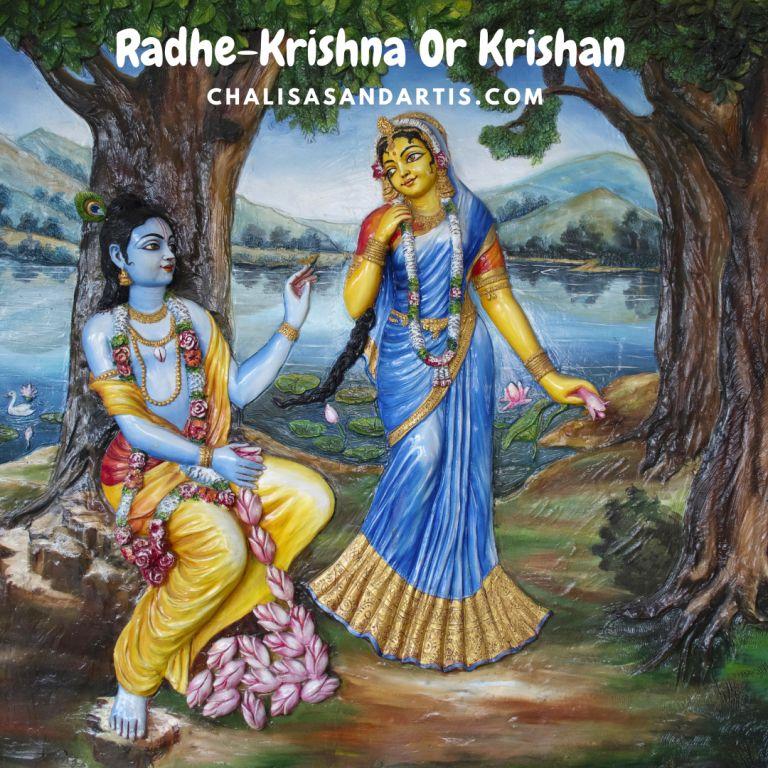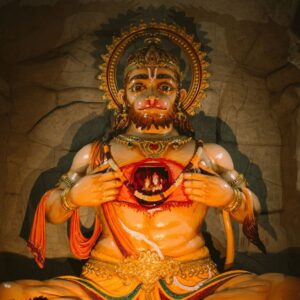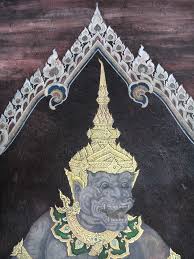Analysis in English and Hindi
INTRODUCTION
In Hindu mythology, the divine love story of Radha and Krishna is an epitome of eternal devotion and spiritual bliss. Radha’s name is inseparably linked with Krishna’s, and their divine union is celebrated and cherished by devotees worldwide.
The enigmatic nature of Radha’s love and her deep connection with Krishna have led to various reasons why her name is always taken with that of Lord Krishna.
In this article, we delve into profound reasons that illustrate the significance of Radha’s presence in Krishna’s life.
In the end we will explore if it is mandatory to take her name before Krishna Ji.
REASONS WHY HER NAME IS TAKEN BEFORE KRISHNA
-
Divine Love Beyond Mortal Understanding:
Radha’s love for Krishna is often regarded as the highest form of devotion, representing the purest and most selfless love that transcends human comprehension. Their love is an eternal connection of the soul, symbolizing the union of Jivatma (individual soul) with Paramatma (universal soul).
Radha’s Exemplary Devotion:
Radha’s unparalleled devotion towards Krishna has earned her the title of “Mahabhava-Svarupa” – the embodiment of supreme love. Her unwavering dedication and surrender to Krishna’s divine will set her apart as a beacon of devotion for all devotees.
The Embodiment of Shakti:
Radha is considered the ultimate source of divine feminine energy (Shakti), and Krishna, the supreme masculine energy (Shaktiman). Their union represents the harmony and balance of cosmic energies, emphasizing the inseparable bond between creation and the creator.
Radha’s Role in Krishna’s Leelas:
In the enchanting leelas (divine pastimes) of Krishna, Radha plays a pivotal role as his confidante and companion. Her love and unwavering support are evident in the various leelas, inspiring devotees to understand the profound depths of their divine relationship.
The Symbol of Bhakti and Surrender:
Radha is considered the epitome of Bhakti (devotion) and complete surrender to the divine will. Her love and devotion to Krishna are an example for devotees to emulate, inspiring them to walk the path of devotion and selflessness.
The Essence of Devotional Poetry:
Throughout the ages, countless poets and saints have immortalized Radha and Krishna’s love through soul-stirring poetry and bhajans. Radha’s name is synonymous with devotion, and her divine love is a recurring theme in devotional literature, creating an eternal connection between the two divine souls.
Radha-Krishna: The Union of Jivatma and Paramatma:
The love story of Radha and Krishna is not merely a romantic tale but represents the union of the individual soul (Jivatma) with the universal soul (Paramatma). Their divine love teaches devotees the profound truth that the ultimate goal of life is to unite with the divine and attain spiritual liberation.
Radha’s Unconditional Love:
The Spiritual Guru: Radha is often considered as the spiritual guru of Krishna, guiding him through the path of righteousness and divine love. Her influence on Krishna’s spiritual journey is profound and signifies the importance of spiritual guidance in one’s life.
The Symbol of Union:
Radha’s Sacrifice and Renunciation: Radha’s devotion to Krishna is marked by sacrifice and renunciation. She willingly let go of all worldly attachments and desires, focusing solely on her love for Krishna. This selflessness and sacrifice set her as a divine example for seekers on the spiritual path.
Eternal Divine Play:
The Essence of Bhakti Yoga: Radha’s love for Krishna exemplifies the principles of Bhakti Yoga – the path of devotion. Her unwavering devotion and surrender to Krishna demonstrate the power of Bhakti in attaining spiritual enlightenment.
The Divine Feminine Power:
Eternal Beloved: Radha is often referred to as “Krishna’s eternal beloved.” Their love transcends the boundaries of time and space, showcasing the eternal nature of divine love and the soul’s eternal connection with the Divine.
Radha represents the divine feminine aspect of the universe, signifying the creative and nurturing energies of the cosmos. Her presence alongside Krishna symbolizes the harmony and balance of both masculine and feminine energies.
- The divine love story of Radha and Krishna is not limited by time or space; it is a timeless and eternal play of love, devotion, and spiritual bliss. Their divine leelas continue to resonate with devotees across generations, inspiring them to seek divine love and union.
-
The union of Radha and Krishna represents the union of the individual soul with the divine, emphasizing the oneness of all souls with the Supreme Being. Their divine love story inspires devotees to seek spiritual union and liberation from the cycle of birth and death.
IS IT MANDATORY TO ADD RADHA'S NAME BEFORE KRISHAN'S
No, it is not mandatory to add Radha’s name before Krishna. While Radha’s name is often taken along with Krishna’s due to their divine love story and the significance of their union in Hindu mythology, it is not a strict rule or requirement. In various devotional practices and traditions, devotees may choose to address Krishna without explicitly mentioning Radha’s name.
Radha and Krishna’s love story is a beautiful symbol of divine love and spiritual devotion, and their names are often taken together to emphasize the profound love and union between the individual soul (Radha) and the universal soul (Krishna). However, in the broader context of Hinduism, devotees may worship and address Krishna alone or with different deities and aspects.
The inclusion of Radha’s name with Krishna is more of a traditional practice and a way to honor their divine love, but it is not obligatory in all religious or spiritual contexts. Ultimately, the focus should be on one’s sincere devotion and connection with the divine, whether addressed as Krishna alone or in association with Radha.
CONCLUSION
The divine love story of Radha and Krishna continues to captivate hearts and souls, serving as a profound source of spiritual inspiration and wisdom. Radha’s name is forever entwined with Krishna’s, symbolizing the eternal bond between the individual soul and the universal soul. Their love story teaches humanity the essence of devotion, surrender, and selfless love, guiding seekers on the path of spiritual awakening and liberation. The divine love of Radha and Krishna is a timeless reminder of the boundless power of love and the eternal union of the soul with the Divine.












